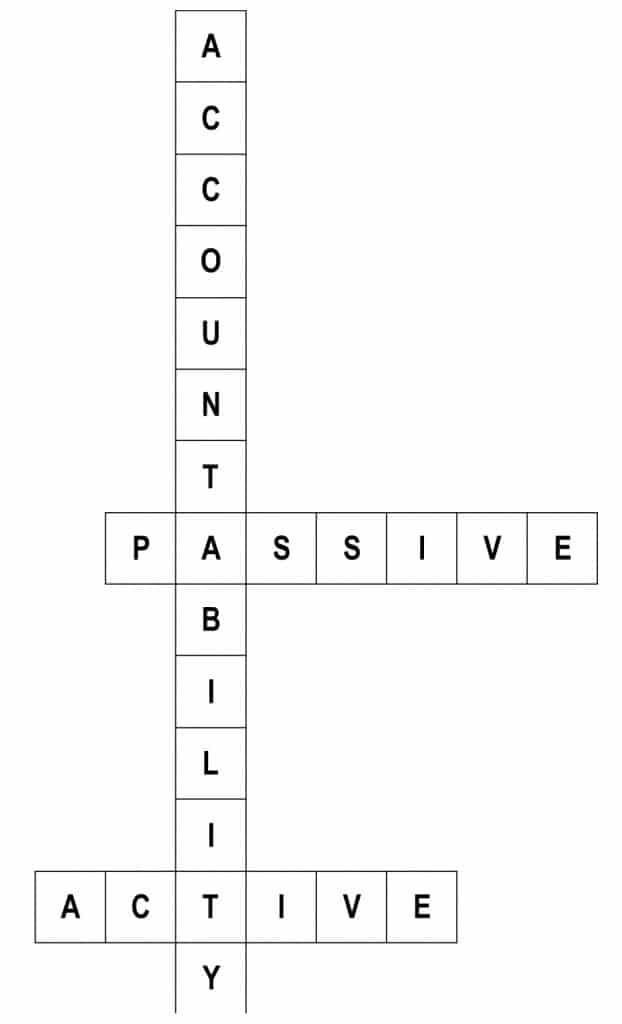My daughter is taking an Advanced Placement English Language course this year. That may be why the November 2014 article in The Atlantic Magazine, “Passive Resistance,” captured my attention. The author, Steven Pinker, explores the role and value of the passive tense. (Or, expressed in the passive tense: The role and value of the passive tense are explored by author, Steven Pinker.)
 Despite a generation of English teachers imploring us to use the active voice, it’s frequently not our go-to communication strategy in business. And The Atlantic article explains why, describing the ‘passive’s ability to hide the doer.’ That’s right… hide the doer.
Despite a generation of English teachers imploring us to use the active voice, it’s frequently not our go-to communication strategy in business. And The Atlantic article explains why, describing the ‘passive’s ability to hide the doer.’ That’s right… hide the doer.
Think about some of the recent communication in your organization.
- Our sales targets weren’t met last month.
- Service has slipped.
- The market’s reception isn’t what we expected.
- Forecasts were off.
And the list goes on. We pass along a litany of passive tense messages daily. So, aside from disappointing a lot of English teachers, what’s the problem with this communication pattern? A lot. Words have power. And the absence of words can rob power. Taking the ‘doer’ out of the spotlight undermines responsibility and accountability… and has implications for motivation, performance and results.
“Our sales targets weren’t met last month” may be a kinder, gentler way of sharing lackluster results; but, if meeting sales targets is important, it’s a completely ineffectual way to express the message. The lack of clarity about who’s responsible for sales inhibits ownership. And ownership is essential for making the changes necessary to beat targets next month.
“The market’s reception isn’t what we expected” softens the truth that “we miscalculated our company’s value.” This shift from passive to active goes beyond mere words; it shifts energy and allows people to move past being bystanders and victims to being active players able to affect change.
“Forecasts were off” certainly places no blame and allows everyone to maintain self-esteem. But so does “we really blew our forecasts”; and this active tense triggers committed, competent individuals to want to do something about it.
In organizations, we put tremendous energy into the construction of buildings, business plans, systems and processes. To optimize these investments, (the construction of our sentences requires similar energy) we must now put some energy into the construction of our sentences.

